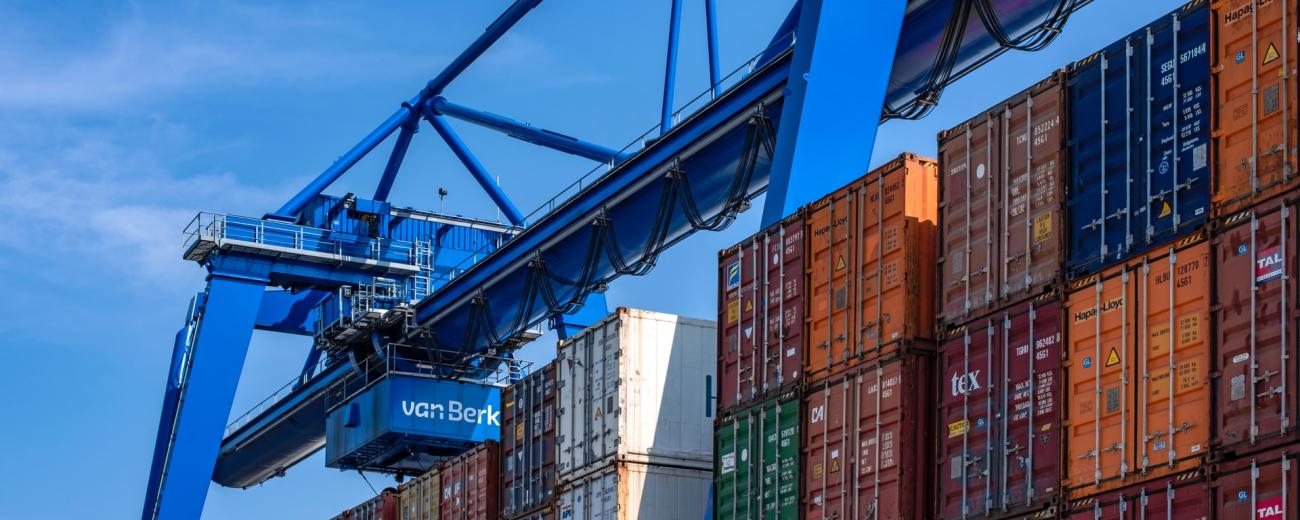MSc Global Corporations and Policy (Online)


Key information
- Duration
- 2-years (Max. 3-years)
- Start of programme
- April / October
- Attendance mode
- Online learning (part-time)
- Fees
-
MA/MSc: £12,000
PGDip/PGCert: available as exit awards. - Entry requirements
-
A minimum upper second class honours degree (or equivalent). We welcome applications from academically strong individuals from a wide variety of fields and backgrounds. Candidates with a lower class degree but with degree-relevant work experience may be considered.
Course overview
The MSc Global Corporations and Policy (GCP) online programme specifically addresses the requirements of those seeking a comprehensive theoretical and practical understanding of the role and dynamics of large corporations in the global economy and international affairs.
The MSc programme has a multi-disciplinary structure and draws on the teaching and research strengths of the Centre for International Studies and Diplomacy (CISD) and of the SOAS departments of International Politics, Law, Economics and area studies (especially of Asia, Africa and the Middle East) as well as a wide range of languages. The programme is delivered by the Centre for International Studies and Diplomacy (CISD) in association with the FCO's Diplomatic Academy, using a combination of multi-disciplinary teaching, cutting-edge research and public discussion of diplomacy and international politics in a globalised world.
You will gain an excellent understanding of the development and activities of Multinational Enterprises (MNE) and their regulation from economic and legal perspectives. The MSc will provide knowledge of economic, legal and public policy approaches to researching MNE organisation, impact and regulation in the global economy and an ability to critically analyse and design solutions to regulatory and public policy challenges related to MNE activities in both the global North and South.
You will develop practical skills including policy analysis, project management, advocacy, negotiation and strategic communication. We welcome applications from academically strong individuals from a wide variety of fields and backgrounds; however, is not necessary to have a first degree in a discipline directly related to globalisation and multinational corporations.
Each application is assessed on its individual merits and entry requirements may be modified in light of relevant professional experience and where the applicant can demonstrate a sustained practical interest in the international field.
Who should apply
The MSc Global Corporations and Policy (GCP) programme is designed for those engaged in, or aspiring to, professional careers in the public, corporate or not-for-profit sectors related to the political and economic management and regulation of multinational corporations.
By studying online, students will also have the flexibility to integrate studies into working life without having to take a career break.
Global Partnerships
This programme can be offered as part of a dual masters degree with Johns Hopkins SAIS.
Through the dual masters, students can spend the first year studying at SAIS and second year at SOAS or vice versa and gain a Masters award from each institution. For more information and eligible programmes included in the dual masters, please see the SOAS-SAIS partnership on the Global Partnerships website.
Structure
Students will study one core module and a range of elective modules on offer each session. There are also four research mini modules which make up the dissertation element.
- 1x core modules (30 credits each)
- 3x elective modules (30 credits each)
- 4x research mini modules
- 1x dissertation (60 credits)
| Module | |
|---|---|
| Multinational Enterprises in a Globalising World | Core |
| Cultural Diplomacy | Elective |
| Diplomatic Systems | Elective |
| Finance Sustainabilty and Climate Change | Elective |
| Foundations of International Law | Elective |
| Global Citizenship and Advocacy | Elective |
| Global Challenges: Science Diplomacy | Elective |
| Global Economic Policy Debates and Analysis | Elective |
| Global Energy and Climate Change | Elective |
| Global International Organisation: United Nations in the World | Elective |
| Human and Critical Security Studies | Elective |
| International Economics | Elective |
| Sport and Diplomacy | Elective |
| Strategic Studies | Elective |
| Trade Diplomacy | Elective |
Important notice
The information on the programme page reflects the intended programme structure against the given academic session. If you are a current student you can find structure information on the previous year link at the top of the page or through your Department.
Please read the important notice regarding changes to programmes and modules.
Teaching and learning
This programme is taught 100% online through our Virtual Learning Environment (VLE).
Virtual Learning Environment (VLE)
This programme is taught 100% online through our VLE. In the VLE you will have access to learning materials and course resources anytime so you can fit your studies around your existing commitments. For each module, students will be provided with access, through the SOAS Library, to all necessary materials from a range of appropriate sources.
A key component of the student experience will be peer to peer learning, with students enrolled in discussion forums.
Study timetable
In addition to a dedicated Associate Tutor, a Study Timetable is provided for each module and for the overall programme to help you to organise your time.
The programme is broken down into two study sessions per year. Each subject module lasts 16 weeks, followed by a research mini module lasting 8 weeks.
Sample study timetable
| Activity | Duration |
|---|---|
| Substantive module | 16 weeks |
| Reading weeks | 2 weeks |
| Research mini module | 8 weeks |
| Reading weeks | 2 weeks |
Assessment
Each module is assessed by five written online assessments (‘e-tivities’*) comprising of 30%, the remaining 70% is formed of a 5,000 word essay. The e-tivities provide formative and summative feedback to students as a means of monitoring their progress and encouraging areas in which they can improve.
* An 'e-tivity' is a framework for online, active and interactive learning following a format that states clearly to the students its 'Purpose'; the 'Task' at hand; the contribution or 'Response' type; and the 'Outcome' (Salmon, G. (2002) E-tivities: The Key to Active Online Learning, New York and London: Routledge Falmer.)
Research training and dissertation
Research training is a key feature of this programme, the dissertation module is presented in four development parts, which will follow each of your module sessions. Research modules one and three are formative modules only, and are not assessed.
The dissertation is assessed by the submission of a written dissertation of no more than 15,000 words, excluding the bibliography and appendices, which will account for 85% of the mark awarded for the module (research module four). The remaining 15% of the module mark will be based on the mark obtained for a 1,500 word research proposal (research module two).
The research proposal is compulsory for students going on to do a PGDip or MA; MA students must submit a dissertation at the end of research module four.
Fees and funding
| MA/MSc | PGDip* | PGCert* |
|---|---|---|
| £12,000 | See below | See below |
* Only applicable to Global Diplomacy: South Asia and Global Diplomacy: Middle East & North Africa .
PG Dip and PG Cert are available as exit awards and interested students should be in touch directly with the course team at glodipadmin@soas.ac.uk
Note this is a new fee structure, students will continue their programme on the same fee structure throughout.
See online and distance learning fees for further information.
Pay as you learn
Our distance learning programmes can be paid in full at the time of enrolment or on a pay as you learn basis. Pay as you learn means you pay for modules prior to enrolment (£3,000).
Postgraduate loans
If you have been a resident in England for 3 years you may be eligible. For more information, see please fees and finance.
Application
To make an application, or to find out more about our admissions procedure, please visit cefims.ac.uk and how to apply (ODL)
Employment
Students from SOAS’s Centre for International Studies and Diplomacy (CISD) develop an in-depth understanding of international affairs, contemporary diplomatic practice and policy-makers. Graduates leave with a portfolio of transferable skills such as critical analysis, problem solving, negotiation and communication, all of which are valued by employers across a number of sectors.
Recent CISD graduates have been hired by:
- Department for Business, Energy and Industrial Strategy
- Ernst & Young
- European Centre for Democracy and Human Rights
- Government of India
- International Rescue Committee
- Medical Aid for Palestinians
- NHS
- The Commonwealth
- UK National Commission for UNESCO
- UNHCR
- United Nations
- World Food Programme
Find out about our Careers Service.






